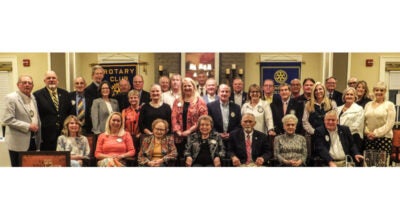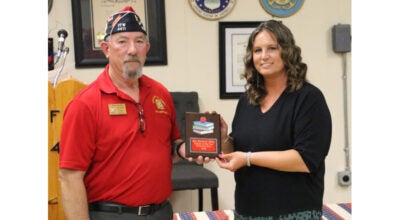Nurture a forgiving attitude
Published 6:36 am Friday, September 18, 2020
|
Getting your Trinity Audio player ready...
|
By Scott Baker
For two weeks in a row the church has gathered either in person or virtually and heard two different stories from Matthew’s gospel on the importance of forgiveness. They each come from the 18th chapter of that gospel and follow back to back. In the first, Jesus gives instructions on “if another person in the church sins against you …” and then goes on to describe the steps the offended one goes through to seek reconciliation. The second is Jesus’ response to Peter asking him “how many times should I forgive, seven times?” Jesus answers saying, “Not seven times but 77 times.” Even the most casual reader of the Bible will see that if a subject arises twice in such a short space then it must have some importance.
One could argue that next to the ultimate virtue of love, the willingness to forgive has to rank a very close second. In fact, one could go a step further and say that the message of Jesus’ crucifixion is one of forgiveness and thus is the cornerstone of the Christian faith.
I find it ironic that we continue to define ourselves as a “Christian nation,” but seem to have lost this all-too-important component of the faith, e.g. the willingness to forgive. Perhaps it is just my hyper-sensitivity to the zeitgeist of our time, but it seems that we are far more willing to hold grudges, harbor resentment, and keep outright hate in our hearts more now than any time that I can remember. We seem to live more by the “I’m taking my toys and going home” attitude than a willingness to seek compromise and a common ground. I’m put in mind of a saying attributed to Nelson Mandela who said in regard to hating and keeping grudges, “hate is like swallowing poison hoping the other person gets sick.” Holding on to injuries and grievances becomes corrosive inside our own hearts. One story that illustrates this takes place between two former Holocaust survivors. Survivor No. 1 asks the other, “Have you forgiven your captors yet?” To which survivor No. 2 answers, “I will never do that.” Survivor No. 1 replies, “Then they still have you in prison, don’t they?”
As we enter into this highly charged presidential election, tempers can flare and conflicts can reach a fevered pitch. It seems to me that an attitude of forbearance and tolerance is going to be needed now more than in recent memory. If we can achieve a level of humility and meekness, mindful of our own shortcomings and biases, we might just be more willing to be more tender-hearted toward our brothers and sisters. After all, in response to Peter’s question of how many times to forgive, Jesus tells the story of the unforgiving servant who was indebted to his master for an astronomical sum of money for which the master forgave him. Upon meeting one of his fellow servants who, in comparison, owed him a paltry amount, treated his fellow servant merciless.
When we are self-aware enough of our own faults and foibles, we tend to be more willing to forgive others. Nurturing such an attitude and disposition just might make, not only this election cycle easier, but, in fact, the rest of our lives and relationships.
THE REV. SCOTT BAKER is the rector at Emmanuel Episcopal Church in Franklin. Contact him at 562-4542.





